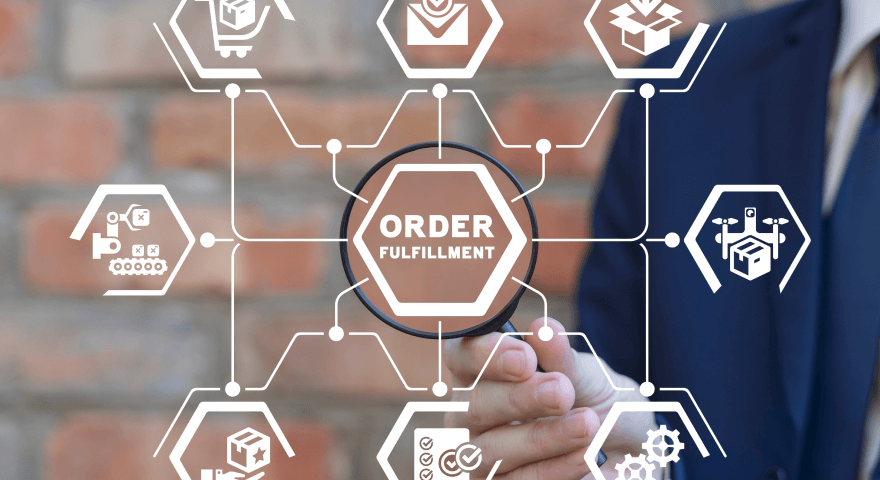The introduction of new technologies changes the way the supply chain is organized. Cloud computing has initiated a movement from functional supply chains to network-based ecosystems. Through cloud technology, information-based tasks like forecasting, planning, order management, analytics can easily be shared with specialized service providers – enhancing the performance of the supply chain and reducing costs. Cloud technology accelerates Taylorism, giving rise to Supply-Chain-as-a-Service (SCaaS).
In some instances, we have seen SCaaS delivering an increase of forecast accuracy through machine-learning based forecasting algorithms by as much as twenty percentage points. Sounds too good to be true? In this article, we’ll dive into the benefits of managed services for your supply chain.
Advanced Technology
Through SCaaS, supply chain specialists provide advanced technology and approaches like machine-learning based forecasting, probabilistic planning, and inventory simulation to your business, generating multiple benefits: there is no upfront investment in expensive software packages needed. In SCaaS, you always have access to the newest technology and algorithms. You do not need to hire expensive data scientists – who would not be 100% utilized by your business alone anyway or block the scale-up of your business when highly utilized. It is better to share these experts with other supply chains, keeping them happy and diluting the costs.
Further, advanced algorithms require constant maintenance through specialists. Otherwise, the algorithm will not keep its high performance in case demand patterns, or the supply situation drastically changes, or some crisis like the Covid-19 pandemic hit the supply chain. Human specialists can detect these changes earlier than algorithms and provide the right feature engineering to maintain high performance of the algorithms.
Many best-practice supply chains like Apple have decoupled operations from supply chain planning and decision making. Apple takes care of all information-based processes, while contract manufacturers and logistics providers take care of the physical operations. Applying this idea to your supply chain means to use the best SCaaS provider to propel your supply chain to the next level of performance.
The Digital Twin
When your supply chain data is maintained and regularly updated in the cloud, you have set up a digital twin of your supply chain. The supply chain digital twin provides a real-time, actualized representation of your supply chain, that can be used for tracking, analytics, simulations, forecasting, and so on.
Sensors play an important role in the creation of the digital twin. Through the constant progressing of sensorification of the world, more and more assets in the supply chain will be equipped with sensors, whose signals can be used to keep the digital twin up to date. Sensors allow us to track containers, trucks, machines, boxes, people: find out what they are doing, where they are, how they feel, and what type of nudges they might need. By that, the digital twin will provide real-time monitoring of the supply chain – enabling entirely new management approaches. For the first time, you can apply lean to global supply chains and continuously improve the operational processes in your supply chain – independently of their location. For example, if a container crashes while being unloaded from a ship, you will detect this in real-time through the digital twin of your supply chain, talk to harbor operations, reorder the damaged goods at the factory and inform your client.
Specialized service providers will help you in setting up, configuring, and operating the supply chain digital twin. Because we have this digital twin as a digital representation of the supply chain built on top of the cloud data collected by various sensors, service providers can ‘log in’ to the digital twin and offer their expertise to plan or optimize, react to exceptional events, provide analytics, or do forecasting. Further service providers will contribute specialized apps, e.g. for supply chain risk management, rule-based alerting, visualization of global operations in a supply chain control tower, etc. Concepts like lean supply chain management and continuous improvement only start making sense in a supply chain that has a digital twin and is updated in real-time.
True Supply Chain Collaboration
In a supply chain, many partners – suppliers, manufacturers, logistic providers, customers – have to coordinate their operations, material flows and information flows to fulfill the demand of the end-customer or consumers in the best way possible. Cloud-based systems enable all supply chain partners to operate on the same state of information, sharing actuals and plans, being transparent on-demand signals and supply decisions.
Only a supply chain cloud enables true collaboration in a supply chain, based on a single-source-of-truth. A service provider is needed to guarantee the neutrality of the performance management system in a supply chain, balancing all views and targets of the supply chain partners. SCaaS is an important enabler of true supply chain collaboration.
Utilizing expertise with Supply-Chain-as-a-Service
But why would you benefit from external service providers? There are two main benefits. Firstly, experts can do it better. The more complex the supply chain becomes; the more expertise is needed. Without specialized data scientists, you will not be able to maintain the high performance of machine-learning-based forecasting algorithms or advanced supply chain analytics systems.
This leads us to the second argument: while you can employ these experts full-time directly, opting for an external service-based approach offers more flexibility and may even be the lower costing solution that allows you to ‘hire’ the expertise of multiple experts for your supply chain. While you probably won’t need these services full time, it isn’t a one-off purchase either: these systems and algorithms need to be adapted, even when they’re based on artificial intelligence. The supply chain changes, environments change, and therefore the digital twin and algorithms will, too.
Curious how Supply-Chain-as-a-Service can advance your business? Get in touch with our experts!




.jpg)



.png)
